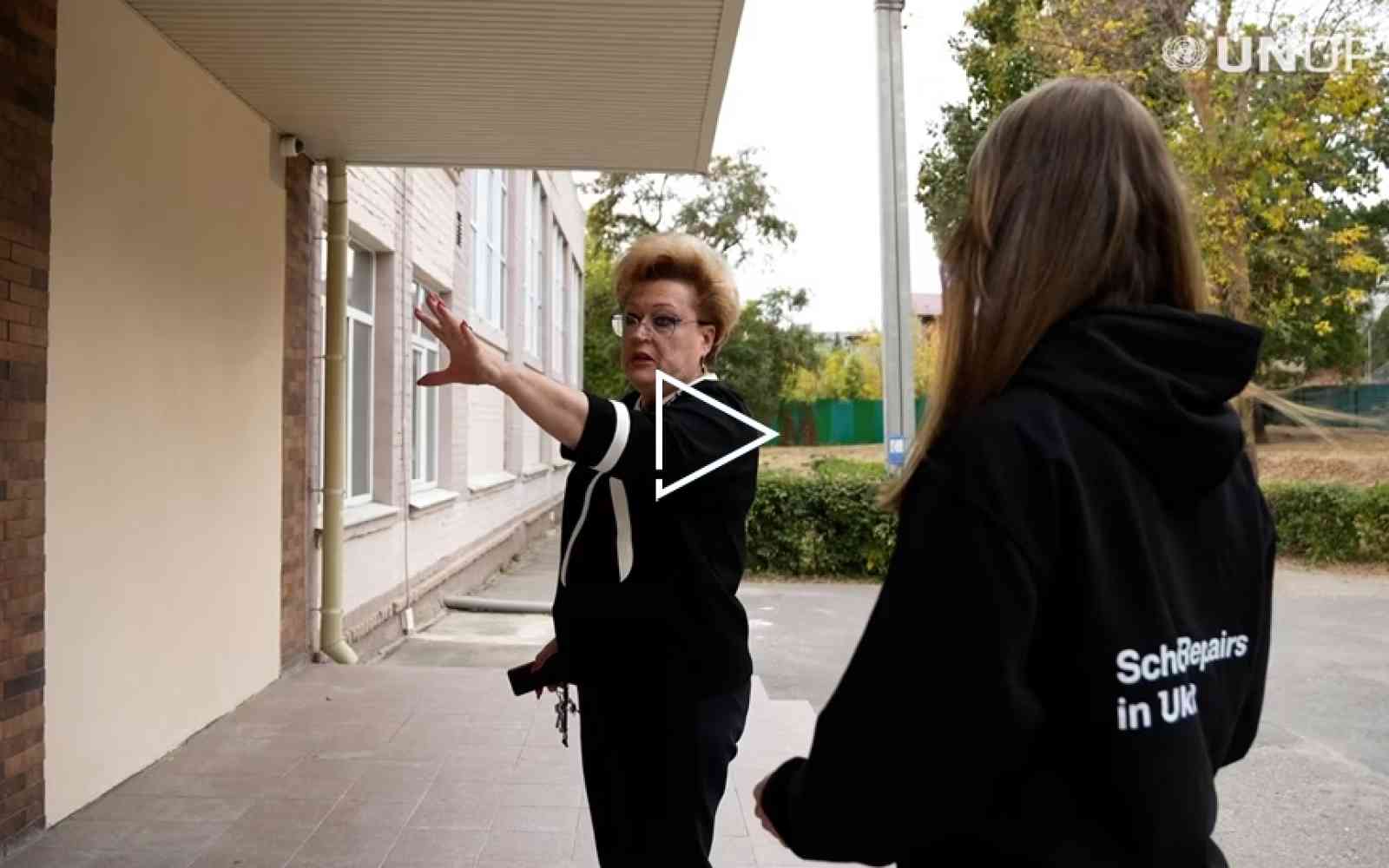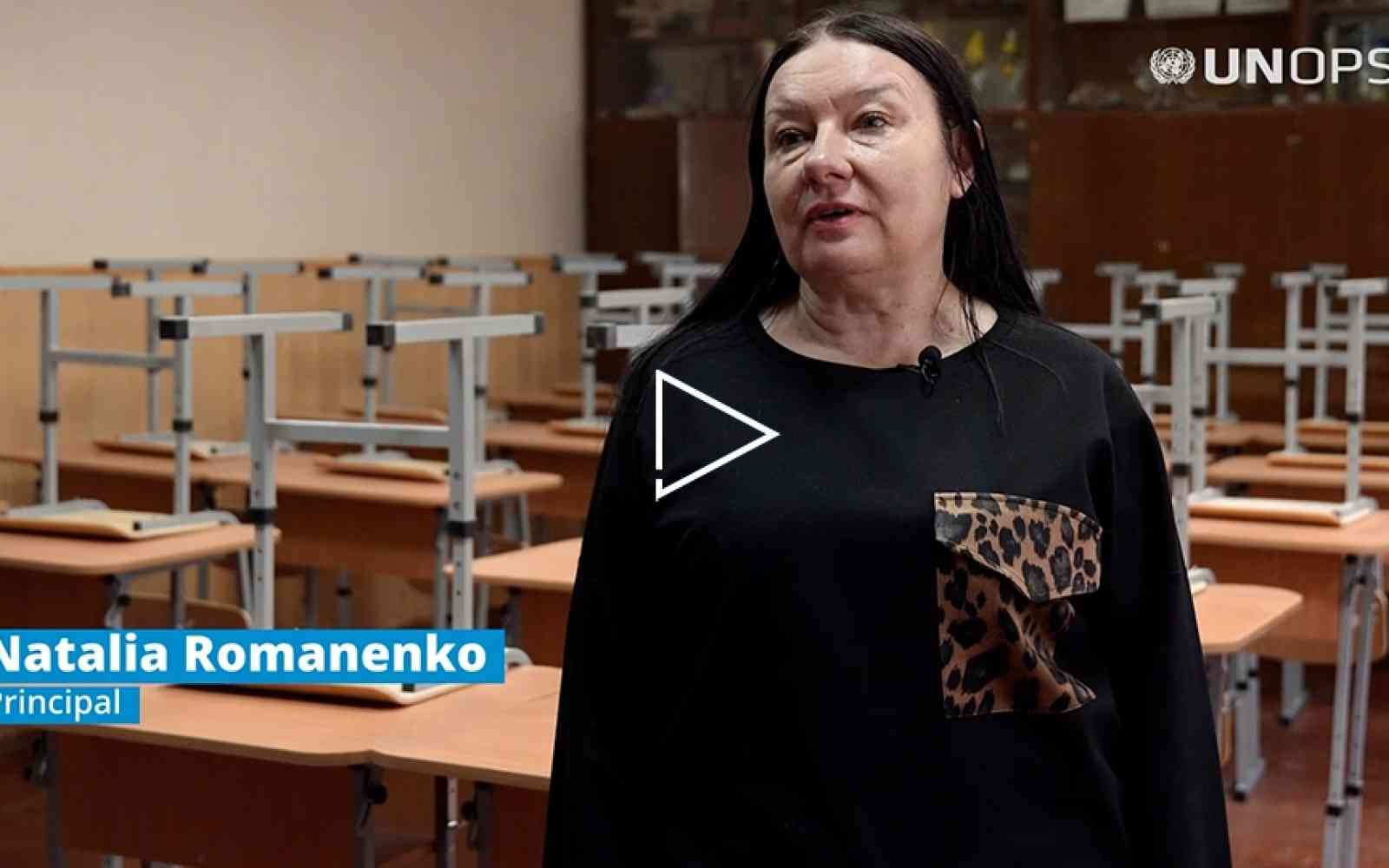The United Nations Office for Project Services (UNOPS)
Rebuilding sustainable energy infrastructure in Ukraine
UNOPS, the Ministry of Foreign Affairs of Denmark and the Embassy of Ukraine in Denmark hosted a high-level roundtable discussion on rebuilding more sustainable and resilient energy infrastructure in Ukraine.
Listen to experts, policymakers and stakeholders discuss Ukraine's energy infrastructure and explore opportunities to rebuild with sustainable, innovative solutions.
The conflict in Ukraine has heavily damaged civilian infrastructure, severely worsening the energy crisis.
"Loss of infrastructure is not just about losing brick and mortar. It is about losing your loved ones, your home, your school, your local hospital, your community and everything that makes life normal and functional," said UNOPS Executive Director Jorge Moreira da Silva.
"By the end of the 2023 winter heating, Ukraine will have lost 44 per cent of its nuclear generation, 78 per cent of its thermal power plant capacity, 75 per cent wind and 20 per cent of power generation," said International Energy Agency's Deputy Executive Director Mary Burce Warlick.
Aging infrastructure, a reliance on imports, supply shortages, high energy prices and environmental concerns have all highlighted the critical need to rebuild and transition to a more sustainable and resilient energy system.




"We will win in the near future and then Ukraine will have a huge next challenge – how to build and construct a modern and efficient energy system," said Ukraine's Deputy Minister for Communities, Territories and Infrastructure Development Yurii Vaskov.
As part of a high-level roundtable discussion, UNOPS, the Ministry of Foreign Affairs of Denmark and the Embassy of Ukraine in Denmark brought together experts, policymakers and stakeholders to discuss Ukraine's energy infrastructure and explore opportunities to rebuild it with sustainable and innovative solutions.
"We need to address the immediate needs of Ukrainian people here and now, but we must not lose sight of the longer perspective [...] putting building back better at the centre of our focus," said Denmark's Minister for Development Cooperation and Global Climate Policy Dan Jørgensen.
Speaker biographies
Yaroslav Demchenkov – Ukraine's Deputy Minister for Energy – emphasized the Ukrainian government’s initiatives to attract investments, promote energy efficiency and develop a regulatory framework to support Ukraine’s clean energy transition.
Dan Jørgensen – Denmark's Minister for Development Cooperation and Global Climate Policy – shared Denmark's experiences and best practices in the energy sector, including renewable energy, energy efficiency and sustainable development.
Jorge Moreira da Silva – UNOPS Executive Director – discussed the role of international organizations in supporting the rebuilding of energy infrastructure in Ukraine.
Christophoros Politis – UN Development Programme's Deputy Resident Representative in Ukraine – initiated the panel debate by presenting the key findings in the latest Ukraine energy damage assessments.
Anne Højer Simonsen – Senior Director of the Confederation of Danish Industry – pointed to some of the experiences, innovative solutions and opportunities for Danish companies when rebuilding sustainably. Anne also highlighted some of the many ongoing collaborations and initiatives.
Yurii Vaskov – Ukraine's Deputy Minister for Communities, Territories and Infrastructure Development of Ukraine – provided insights into the Ukrainian government's priorities and plans for rebuilding the energy infrastructure in Ukraine.
Mary Burce Warlick – the International Energy Agency's Deputy Executive Director – highlighted the potential for renewable energy in rebuilding Ukraine’s energy sector as well as the need for international cooperation and investment to support Ukraine's energy transition.
Hanna Zamazieieva – Ukraine's Head of State Agency on Energy Efficiency and Energy Saving – explained the key strategies and policies that Ukraine is implementing to build sustainable energy infrastructure. She also highlighted the focus on renewable energy sources, the promotion of energy efficiency measures, and the importance of international collaboration and investments.












